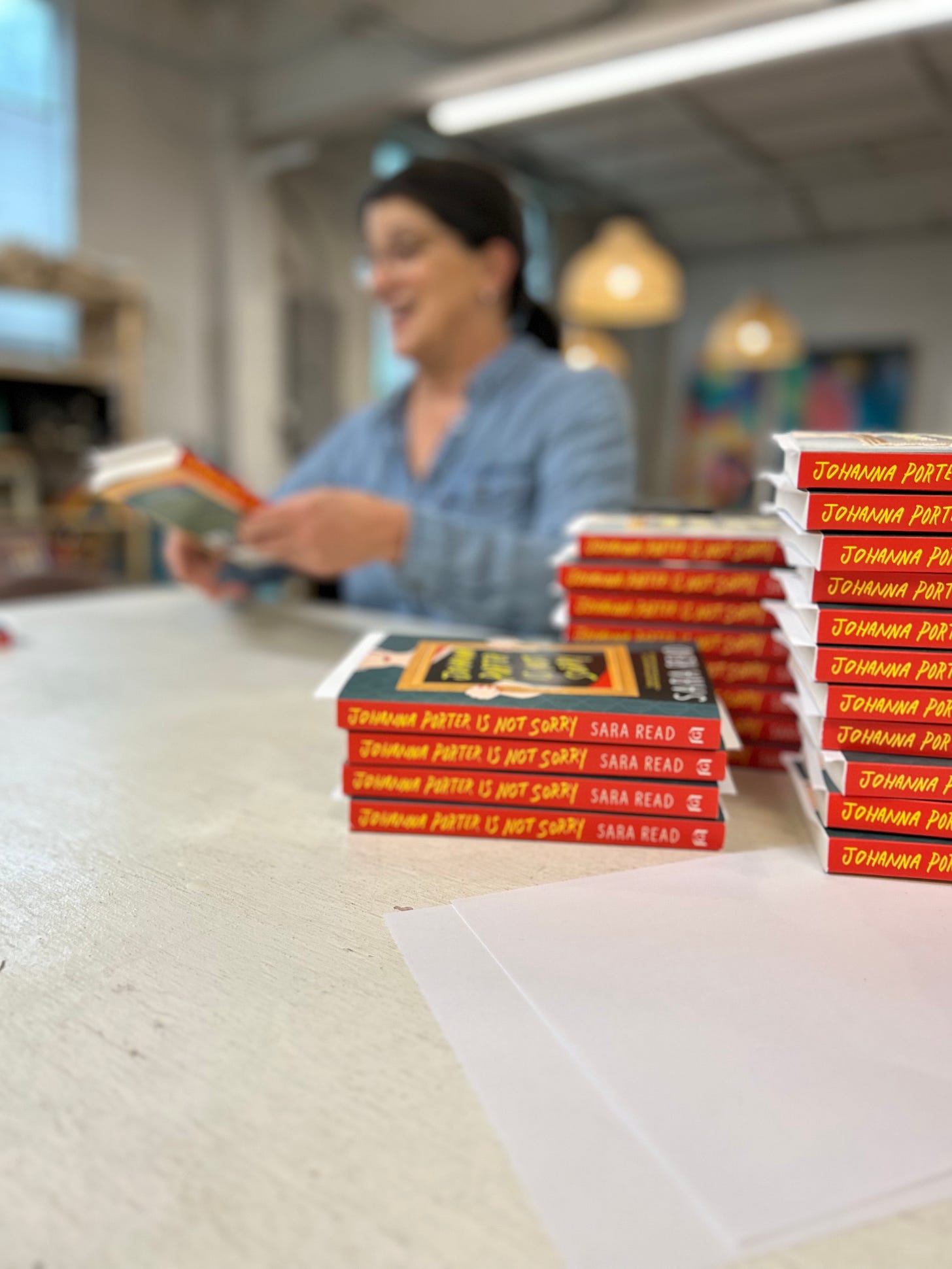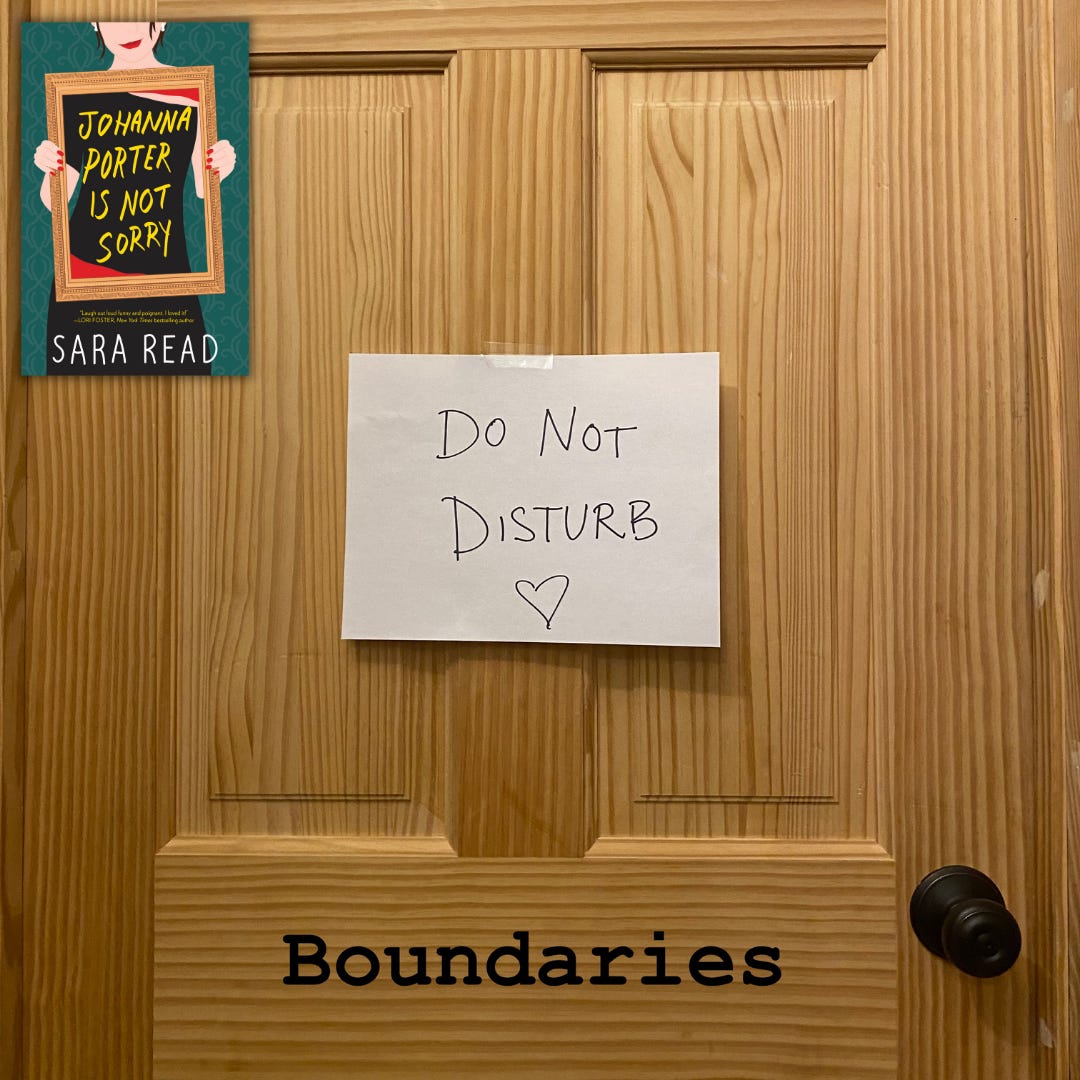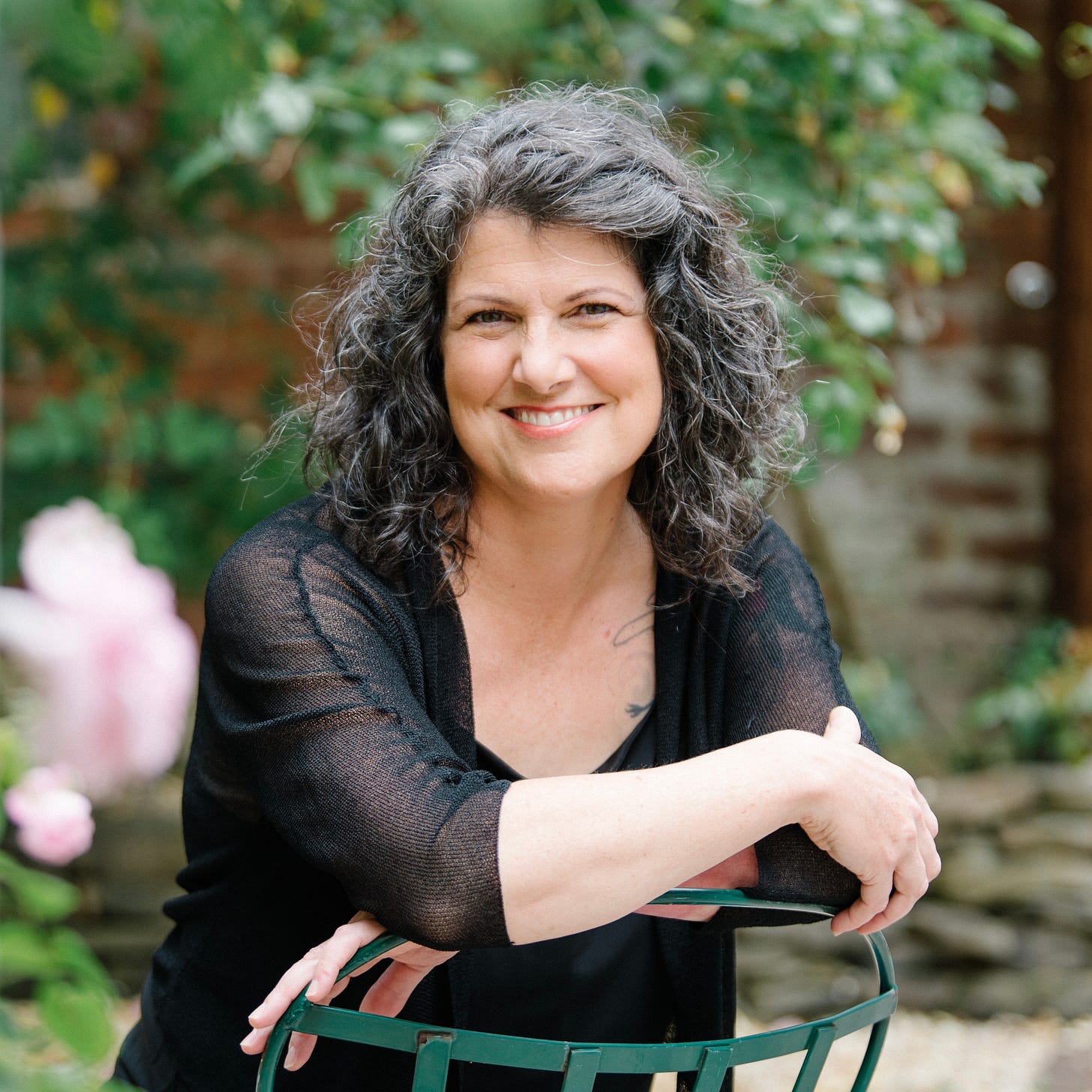Novice-to-Published (and beyond)
Ten things every writer needs
Last year, in the ten days before publication of my debut novel, I did a countdown of the ten things that were essential to bringing me from newbie writer to published author. At the time, I was too nervous and keyed up to write much more than a paragraph or two a day, so it satisfied the itch. As I get ready for the publication of my second novel (January 9!), I’m sharing it again because I’ve found in the last year that it’s true at any point in the journey.
10. The Seed
It starts with the seed.
Of an idea, a story, a character, a setting, a thing that happens, even just a beautiful sentence. A thing that insists on growing. This is the place where a story, a poem, a novel is born. That seed will sprout and try to grow in twenty different directions before it finds its sun. When it does, and becomes a firm sapling, hang onto it. When you feel lost, it will pull you through.
For me, the seed is usually a character and a feeling. Rage, longing, intensity, loss. The more I stay true to that original feeling, the richer and clearer the story and the writing become.
9. Boundaries
As I learned to write, I also had to learn how to carve space and time out of my life to write. My kids were grade-school age, I had a night-shift job as a labor and delivery nurse. Life was busy. Creating the space to write required shifts in our family patterns. One day I wrote “Do Not Disturb” on a piece of paper and taped it to my door.
It’s a privilege to have a room with a door to put a sign on. But the room and door are in many ways not as important as the sign. And the enforcement of the sign. I could have sat at the kitchen table with the sign taped to the back of my laptop. (I should have. I wrote in the kitchen a lot.) For parents without a partner to field the kid-needs, it’s harder for sure. But school-age children can take care of a lot themselves. They can learn that, while mom is physically here for emergencies, y’all can get your own snacks and find your own socks for an hour.
Those of you with preschoolers… all I can say is, hang in there, grab your minutes when you can. Though it seems like forever, they eventually will be able to get their own snacks—though my teenagers still cannot find their socks.
Mostly, Do Not Disturb is a frame of mind. A mental and emotional muscle that, for some people (especially women), is underdeveloped. Do Not Disturb means that I value my own creative life, and I’m learning to let it occupy real space.
8. Minutes
Writing is a long, long game. My stats: 9 years writing seriously, four years querying, 225 submissions, 9 yeses (short stories, residency, offer of rep, book deal).
There’s no short cut. Not an MFA, not a connection, not an expensive retreat. And those people who had massive success in a year? Outliers. Or just liars.
If you’re not in control of your every hour (which most of us are not), time is scarce. But here’s the key: writing can be done in minutes.
Write longhand in the car at soccer practices, during downtime on night shift, waiting in the pickup line, dictating to voice message while driving. Motherhood, for all its busy-ness, involves a lot of waiting. Even five or ten minutes can make a difference.
Occasional periods of deep immersion are great but the words you write when you have ten minutes and a notebook will likely be as good as the words you write when you have hours. Better maybe, because you don’t have time to get all in your head about it.
And get used to the idea that whether you have hours or minutes to write—it will still take years
So don’t wait. Write.
7. Teachers
We learn to write from people who are better at it than we are. Not just a little better—a LOT better.
There’s tremendous value in online resources: blogs, youtube videos (hello #MomsWritersClub), blogs, etc. Here you can learn a great deal about writing for next to no money. And I am a fanatic about my craft books. All 57 of them—I just counted.
But there is nothing like learning from a real live human being—getting in there and talking about YOUR work, asking questions, and pondering their feedback. Not peer feedback here, but the reflection and guidance of a person who is BETTER AT IT than you are.
The essential partner to a great teacher is a willingness to learn. Your work is never perfect. You can always become a better writer. Pride goeth before a mediocre book.
And if you’re a parent, you get to model hard work, respect for teachers, humility and an open mind. Your kids’ teachers will thank you.
6. Good Books
Everyone knows you have to read to learn to write. But similar to seeking out teachers who are better at writing than you are by a lot—so should we consider at least part of our reading lives. Absolutely read for pleasure, but if you want to get good at this very difficult, time consuming art form, it helps to keep one critical eye open.
As you read, ask yourself, is this the kind of thing I want to write, but I’m not quite there yet? Is this book doing some wonderful new thing to me, and I must know what it is? If so, slow down. Reread it. Hold onto it, and keep it near your desk. Those are the books that will teach you.
While I believe reading a lot is a good thing in general, as writers, the books we read will influence and color our own use of language, our own sense of story. This is normal and inevitable, but it’s good to be aware and choose those colors with intention.
Of course your Good Books will be different than mine. Just as your interests, your aspirations, and your books are different than mine. And luckily there are many, MANY Good Books out there waiting to be read.
5. Honest Feedback
You 100% can't write a good book without honest feedback. Okay, maybe 99.98% can't. There's some unicorn out there who births a genius work of literature all alone. But that person definitely wouldn't be me.
You get to a point in a book where you have looked at it enough. You need READERS. This is the point where you may want to ask your mom or your partner or your friend. And these people are great and will tell you how awesome your book is (I hope). But what you really need, after the first draft has been written, are peers. Writers who speak your language. People who can really break down what's working and what's not.
When someone does this for you, buy them a bottle of wine or something. It's so valuable.
And you have to be able to receive their feedback. One of my favorite critique partners does not mince words. It can feel like a punch in the gut. She doesn't mean it to. It just hits my soft underbelly of impostor syndrome. But it’s such a gift because when she loves something, I know she’s not just blowing wind up my skirt.
When you find the person that can really see what needs work and tell you what it is, that person is golden. Hang on to them.
4. Rejection
The road to publishing is paved with rejection. As with the music industry, the internet removed a lot of barriers to entry, so a lot more people got into the game. This is good, but it means now authors don’t count rejections in dozens, we count them in hundreds. Will you be the darling unicorn who bypasses all that angst? Unlikely. But I think it’s what we all secretly hope at first.
One needs to protect one’s mental health in this grueling process, and one of the best things you can do is to reframe what rejection means. You will not get published without getting rejected first, so rejection means you are doing the right thing. It means you are sending out your work. You are trying. You learn things from rejection you can’t learn any other way.
You have to develop a tolerance for it. The idea of aiming for 100 per year can be a game-changer. While they’ll still sting, they’ll also count towards a goal. It can really help to get you out of your own way. https://lithub.com/why-you-should-aim-for-100-rejections-a-year/
Every writer finds a way to cope with rejection. My writing bestie's is, “I will be successful. If I keep at it, it's only a matter of time.” Mine is “The odds are against me, so might as well write what I want.” Find your own, and remind yourself often. The key is to keep literary rejection in perspective. Trying to fulfill a dream is important, but life is long and a lot of things are important.
If nothing else, remember this: It’s not personal. Publishing is subjective. Write the next book. Write the next book. Write the next book.
3. Other People
A writer is made in solitude. An author is made in a community. Many, if not most, of us relish the time alone in our own heads, which is at the core of being a writer. But if you’re going to move into publishing your work and reaching readers, you need other people.
You need family and/or friends who support your work and the time it takes to do it. Even if it’s just one close person who is rooting for you. It can make all the difference on the dark days. (I'm lucky to have many, but especially @bobbyread1)
You need other writers. As friends, critique partners, beta readers, and mentors. It is life changing to have someone you can text when you have a super specific craft question. And someone who will celebrate and commiserate, with the insider knowledge of what things really mean. They will make your life and your writing better. (Looking at you @authorjesspayne )
You need authors who are ahead of you in the journey. You may not have such a friend yet, but keep an eye out. Look for opportunities to connect. Authors are so often generous with their time and knowledge. (Looking at you @ellecosimano)
And you need a community. If you have an IRL resource for this—a writing center or critique group—amazing. If not, try social media. Filter and block anything you don’t want to see, stick with ONLY writing, and Twitter becomes a great resource. There’s nothing like having an extended circle of likeminded writer friends to support and learn from one another. (Looking at you #momswritersclub)
Grow and nurture the community that is most nurturing to YOU. Be yourself, and never mind the haters.
2. A Beginner’s Mind
The beginner’s mind is a concept from Zen Buddhism—that to the beginner, all is possibility, but as we become expert—when we Know Things—we begin to close ourselves off from possibility.
There are social science studies showing that being expert at something—or even *believing* you are an expert—breeds closed mindedness. Blindness to the full range of possibility. The beginner’s mind approaches every endeavor as if it were the first time ever. Open to all possibilities.
When we are learning to do something as complex and difficult as write a novel, we want to find what “works” and eliminate what “doesn’t work.” Our time is finite after all. But let “works” and “doesn’t work” be tools, not barriers.
Bring the beginner’s mind to the chair every time you sit down to write, whether you’re starting over after shelving a manuscript or after publishing a manuscript. Bring it to every story, character, chapter, sentence, and word choice. Let everything in.
Give yourself the chance to strike on something marvelous by keeping the doors wide open. In fact, forget there are doors at all.
1. The Work
The only way—THE ONLY WAY—to get to publication date of your first novel is to put your butt in the chair and get to work.
You can be the most brilliant, sensitive, expert, deserving, beautiful creative genius; you can have all the potential in the world; it can be your motherfucking DESTINY. But if you don’t put your butt in the chair and do the work, it’s not going to happen.
Everyone’s got a part of the process that’s extra hard. Where we get stuck and agonize, avoid, struggle, overthink. I’ve been there. I go there often in fact. So often that I had the chair tattooed to my arm to remind me. Get your butt in the chair. Do the work.
The fun part is fun! You signed with an agent. Your book sold. Pub date is finally here! It’s thrilling and validating and wonderful. But it is a tiny fraction of the actual work of being a writer.
And dealing with the hard parts is hard. Shelving a novel after a hundred queries. Shelving another. Being dropped by your publisher, or parting ways with your agent. As big as those experiences are in your career, they are still not the actual work.
Writing words is the work. And there are going to be a LOT of words. All of them matter. All are practice. None are wasted. Always come back to the chair, the page, the words. Everything is born from there.
Learning to write is the work of a lifetime. But it’s also the work of right this minute. Don’t overthink it. Go write some words. See what happens.
I offer coaching to writers of fiction. I can help you make your current manuscript or query letter the best it can be. I can also help you develop skills—both practical and personal—to navigate the query trenches and beyond, and be ready to make your next book even better. Being a writer is a long game with zero certainty and a constantly shifting landscape. Writing a good book is important. So is finding your strength and endurance as a writer so you can enjoy the real fulfillment that the writing life can bring. And both are learnable. Learn more…
Thanks for being here! If you find it makes your creative life better, and you are in a position to voluntarily offer your support, I truly appreciate it. If you are not in such a position, I am equally delighted to have you on board.






